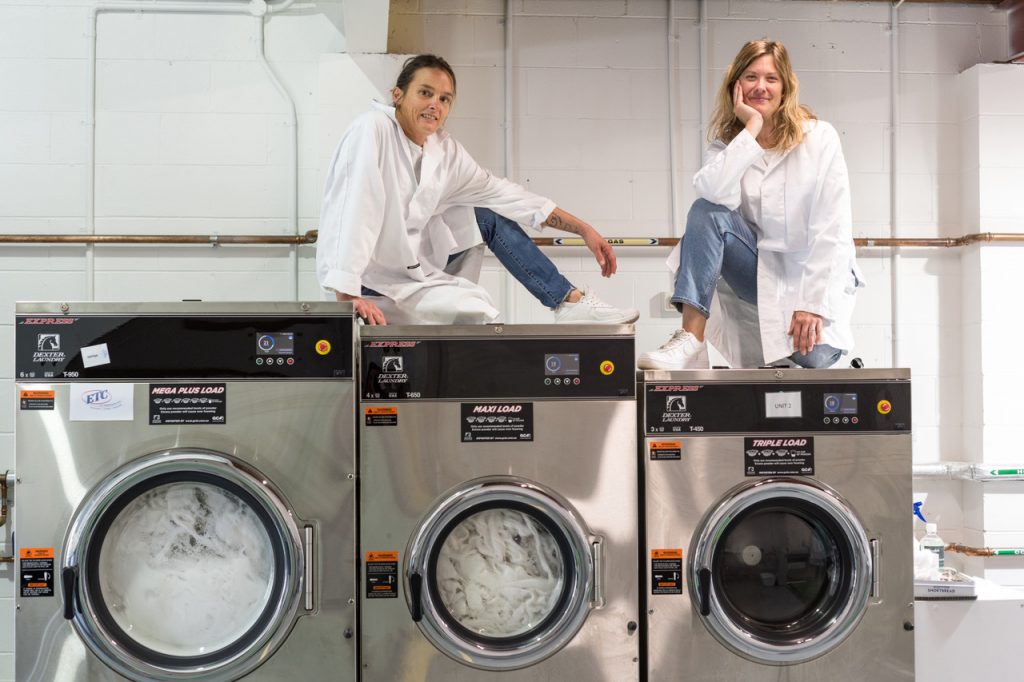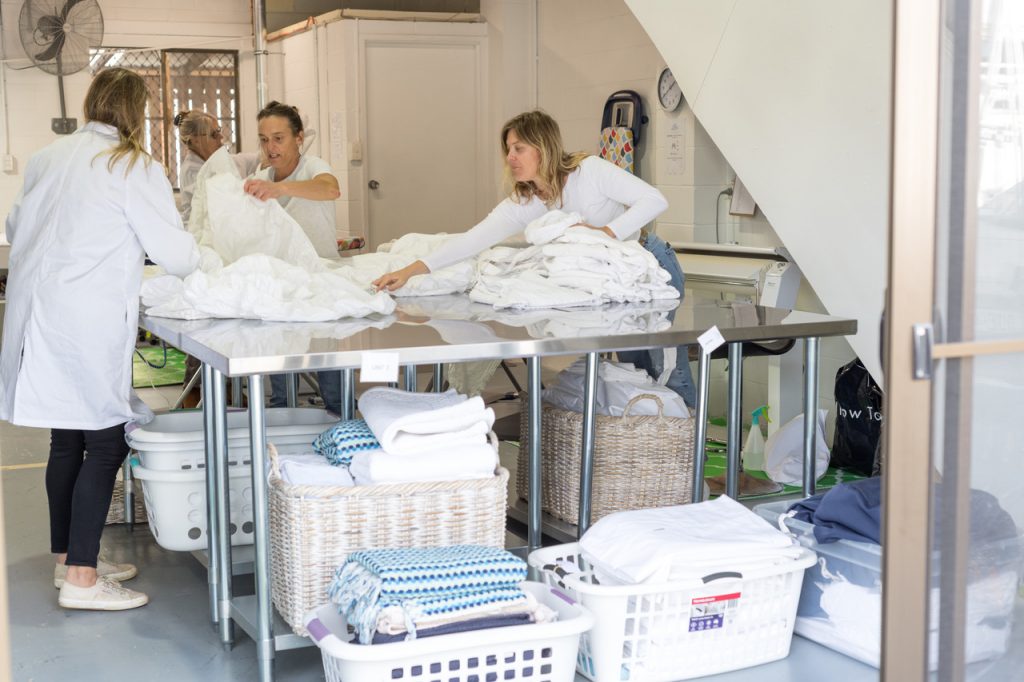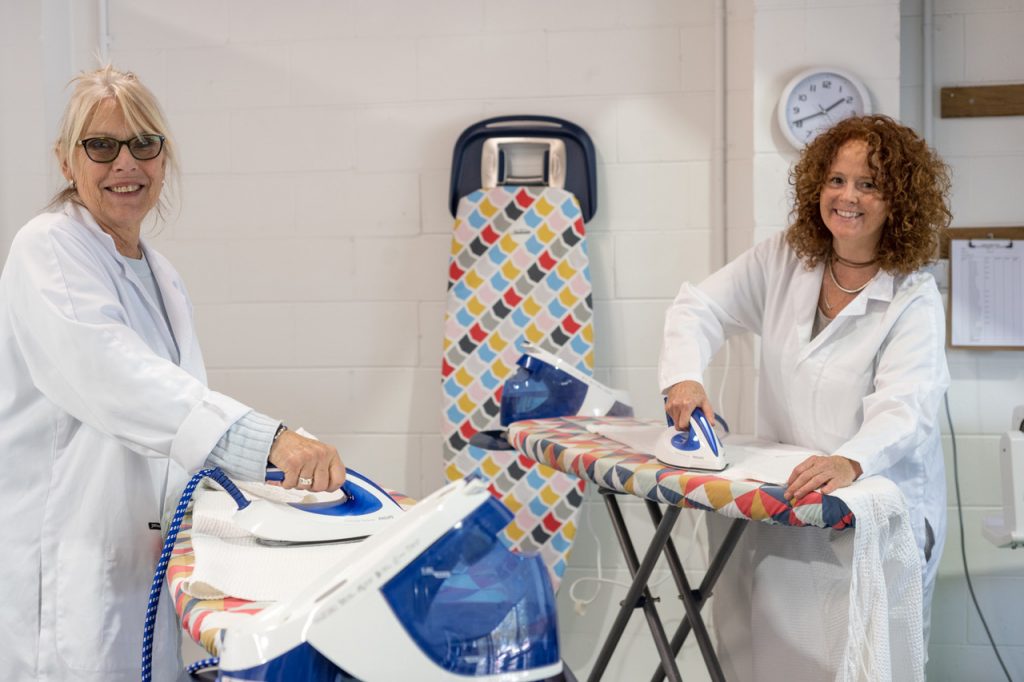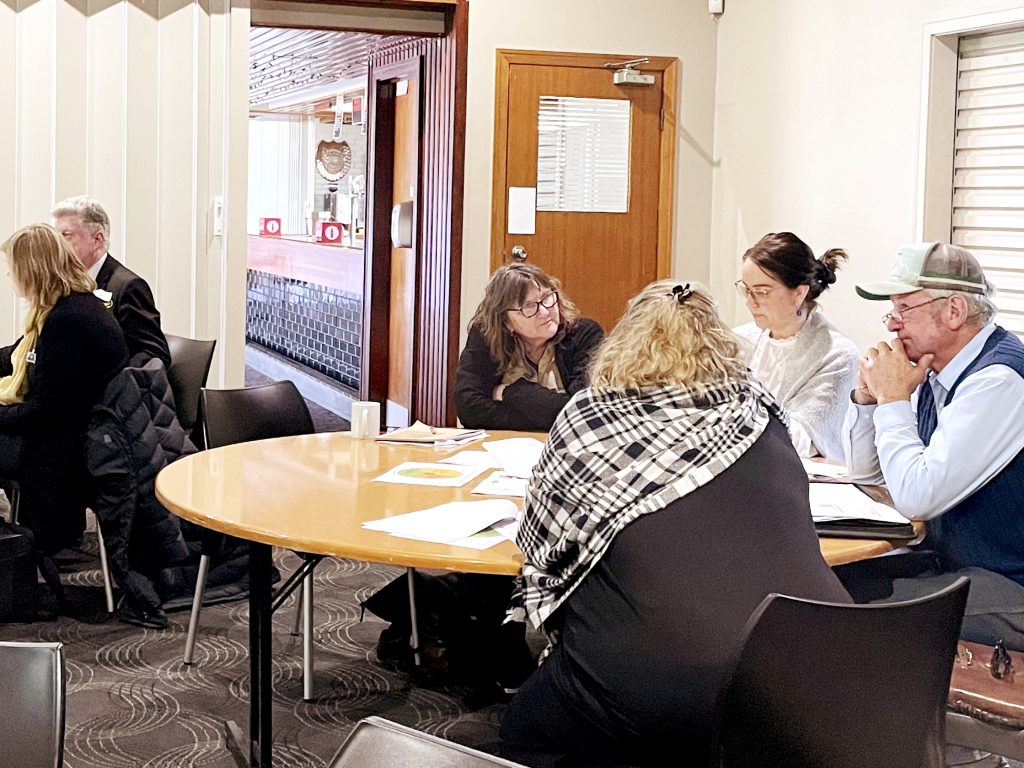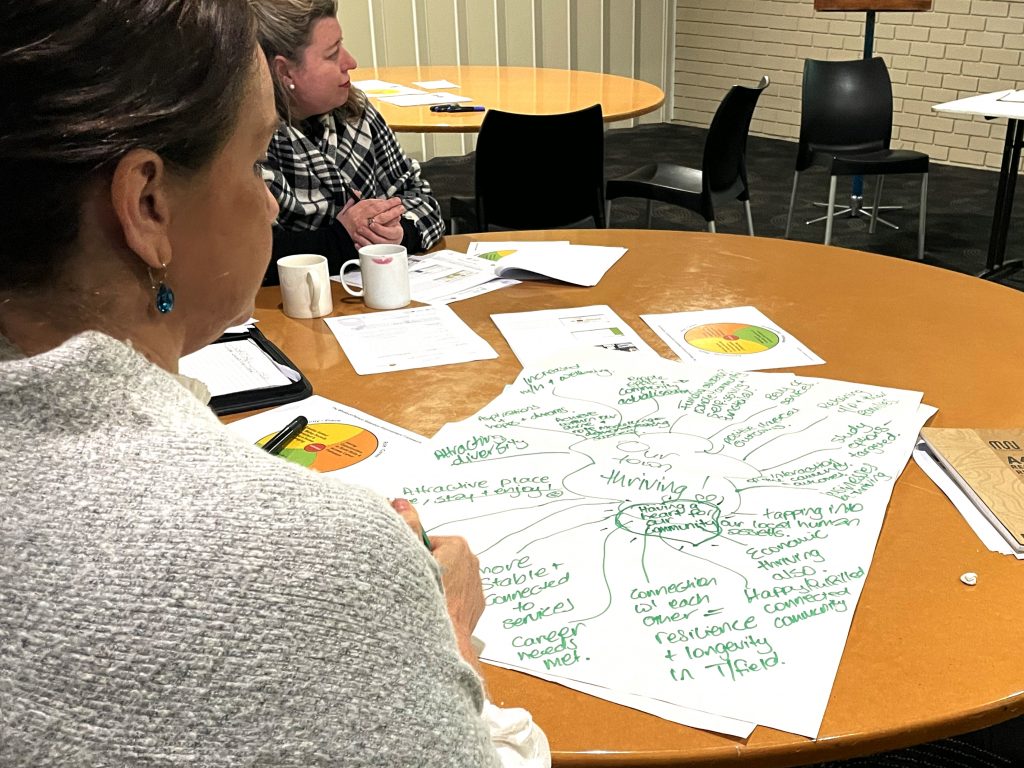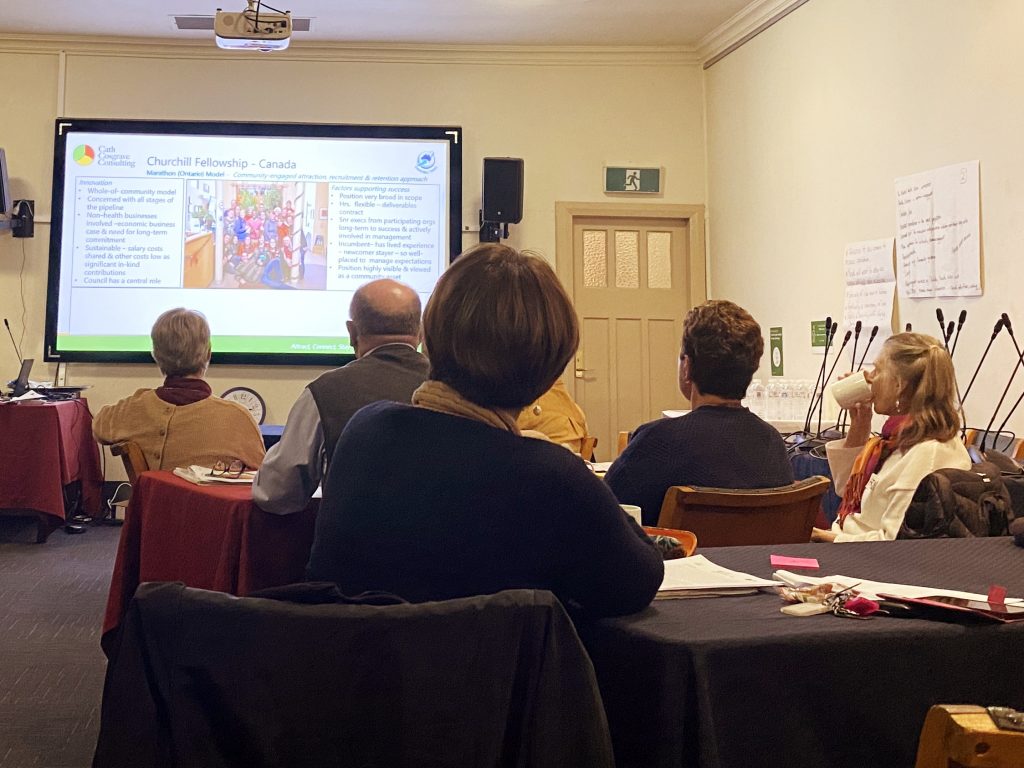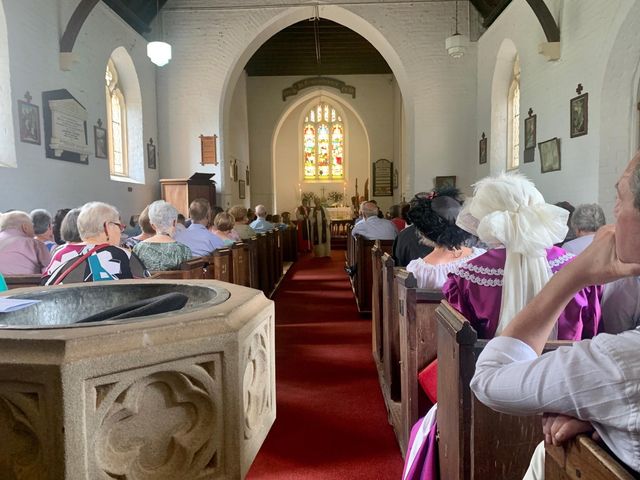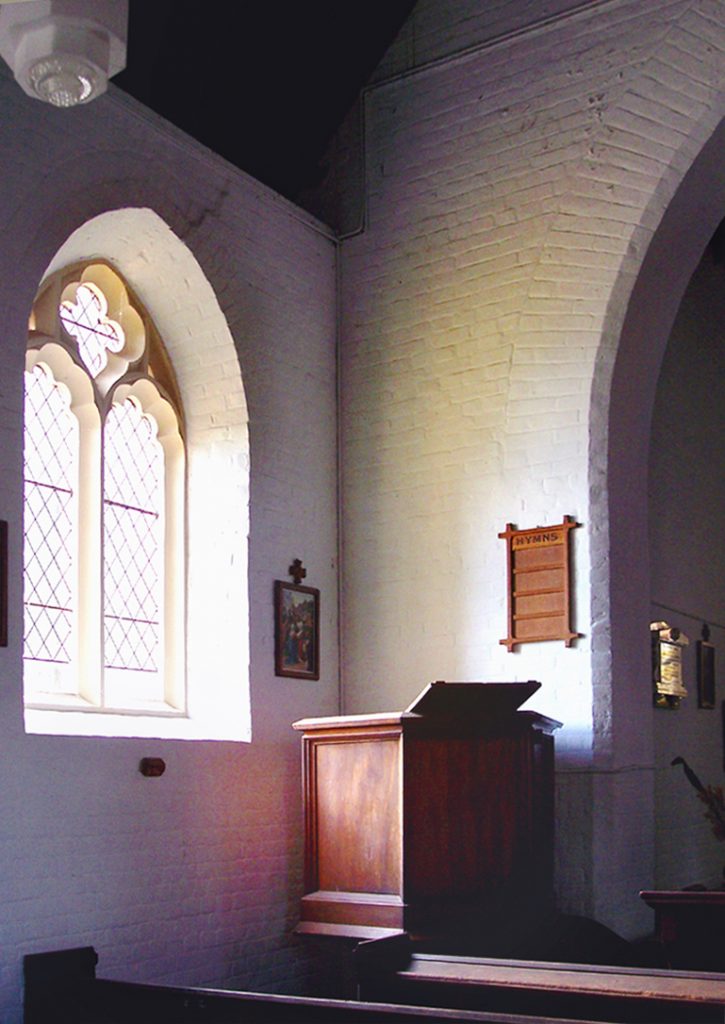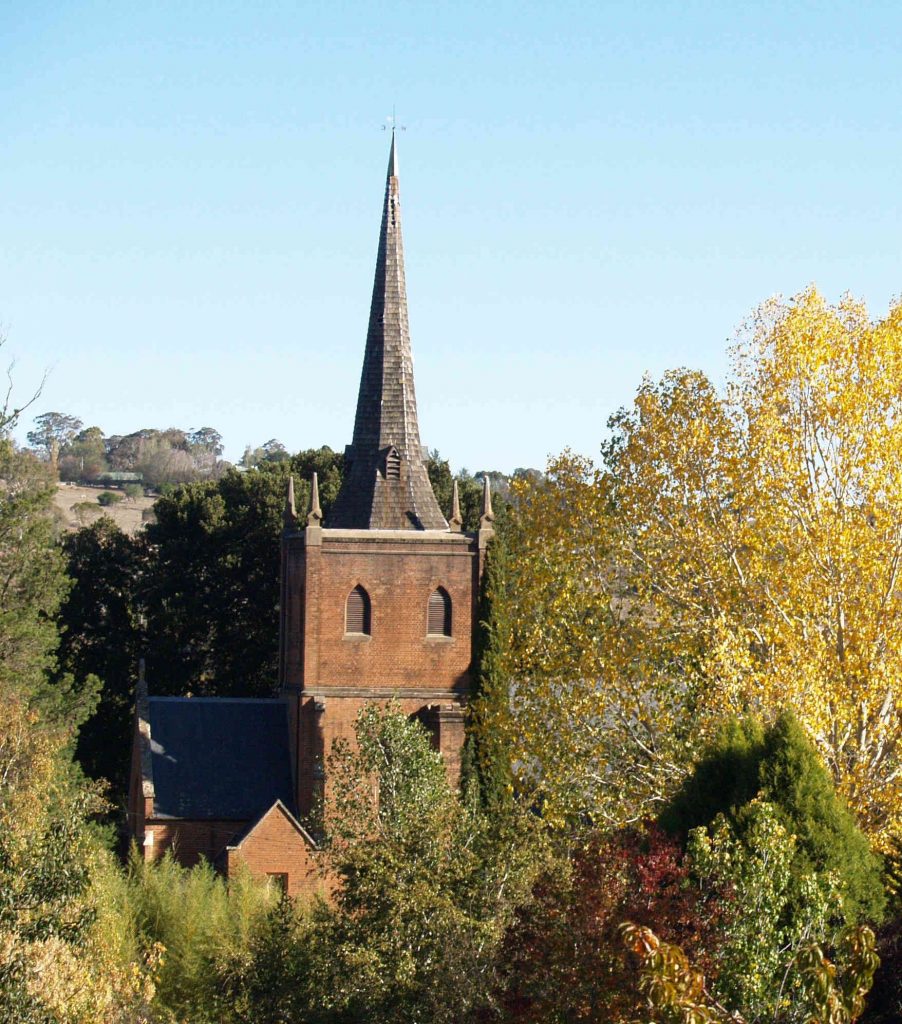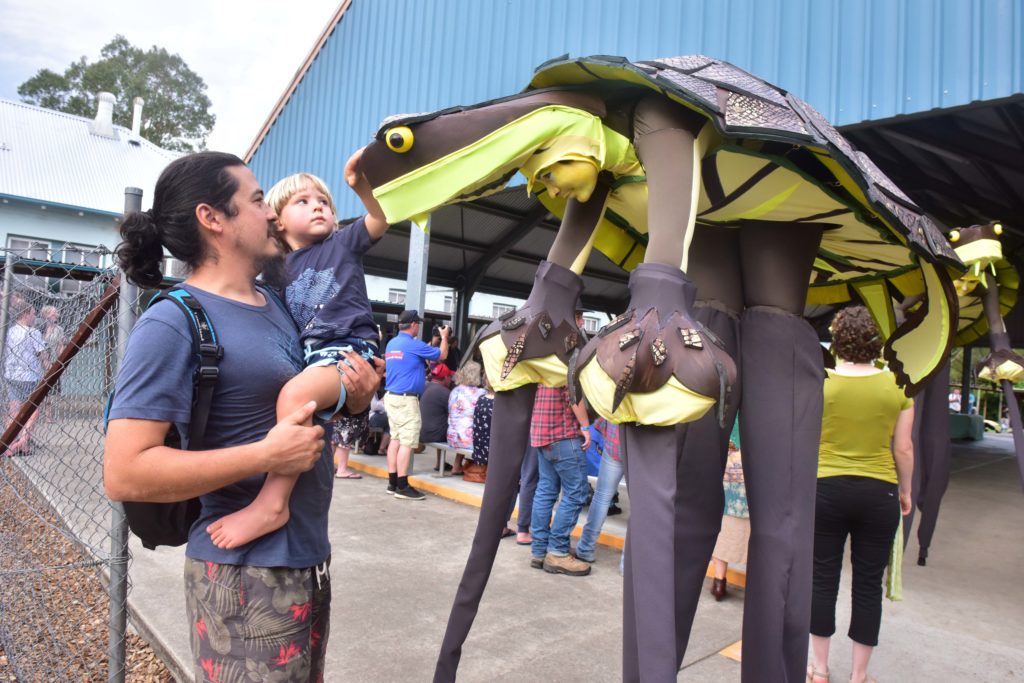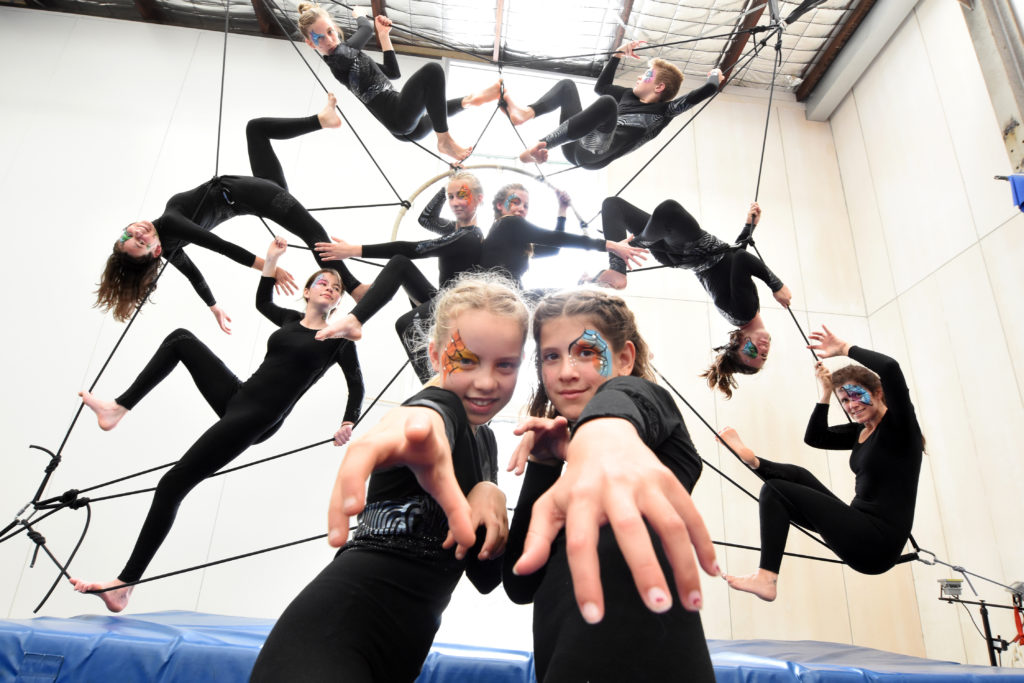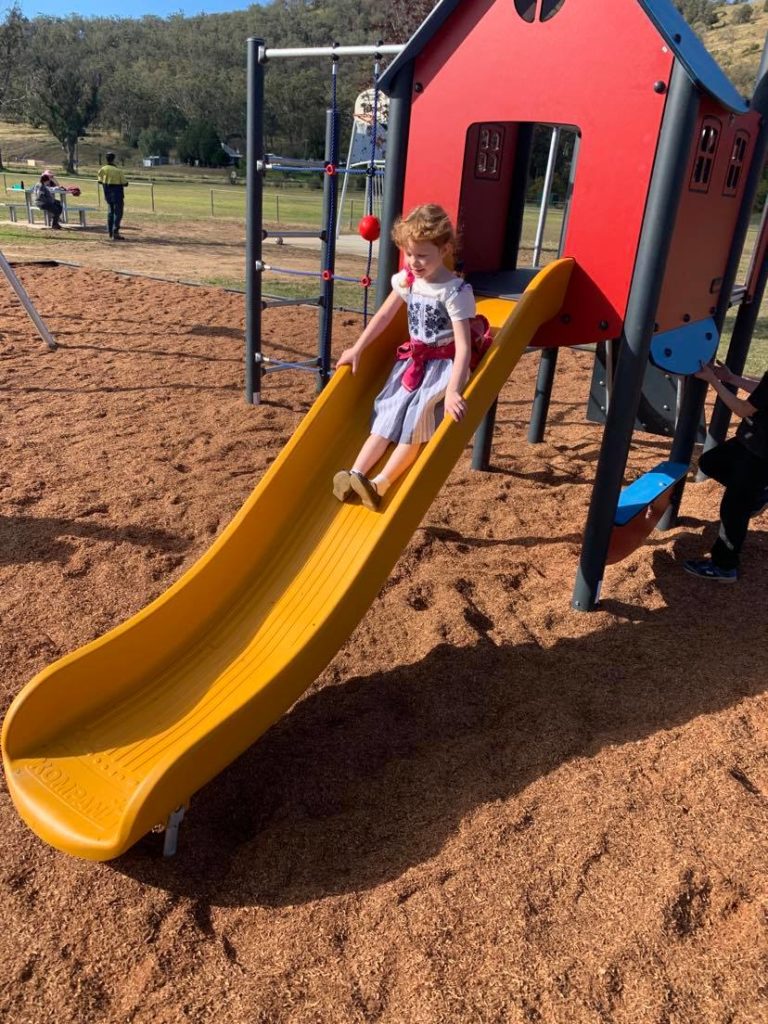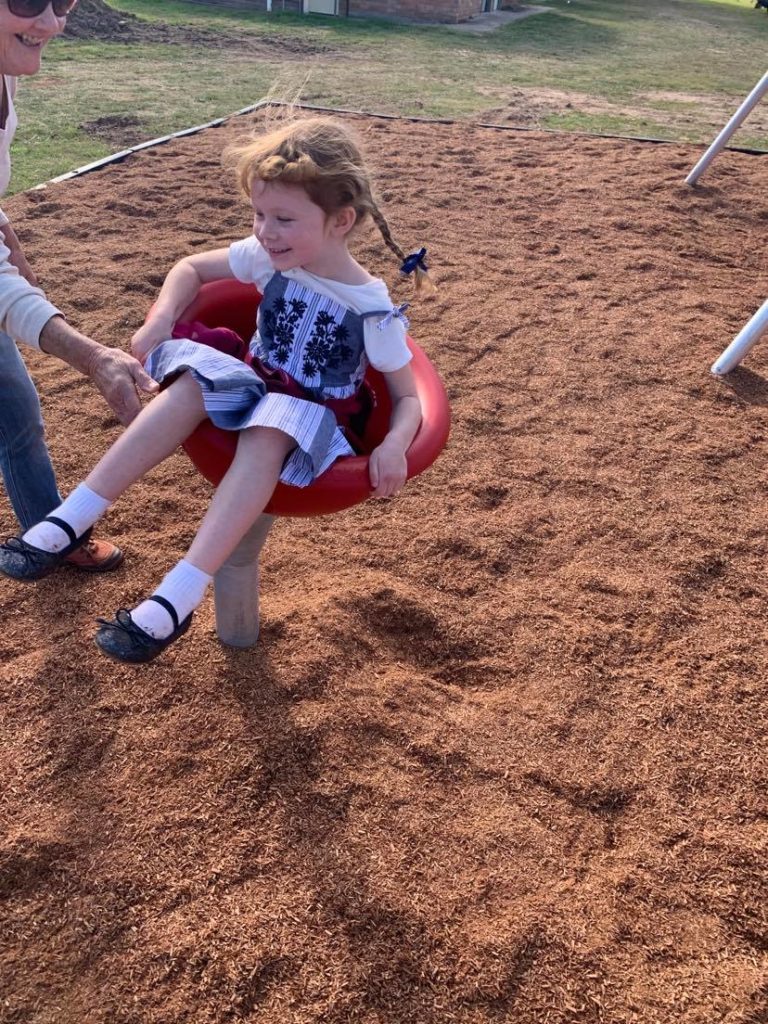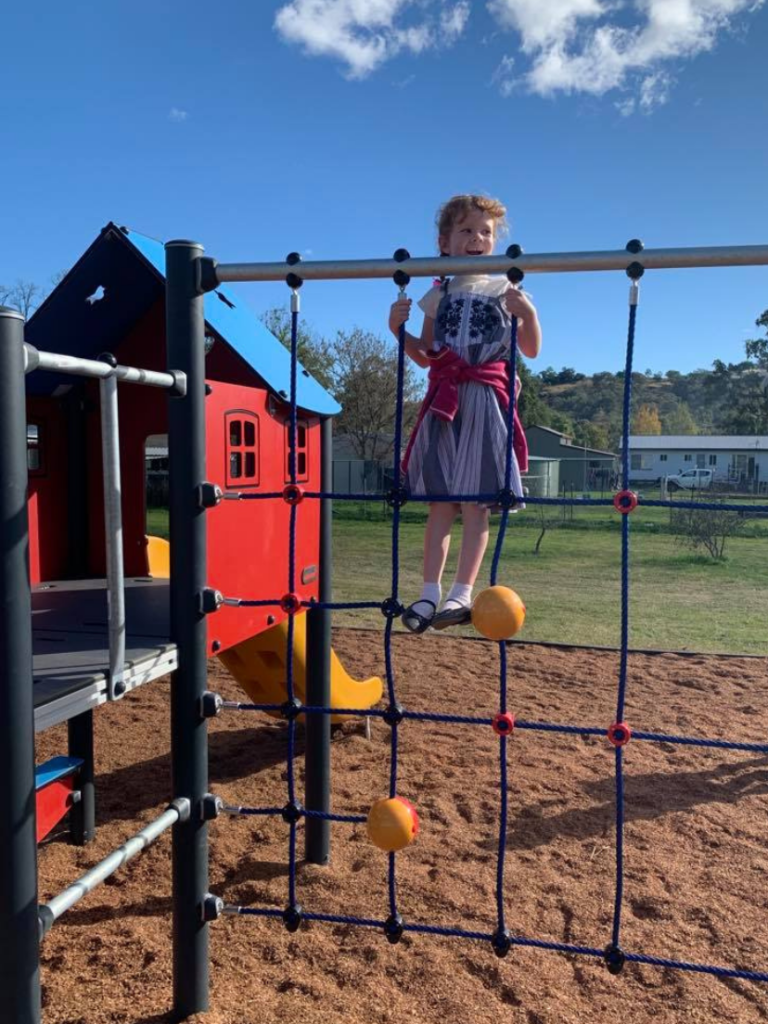Foundation for Rural & Regional Renewal (FRRR)
Arakwal Country
Founded in 2015, The SHIFT Project Byron is a short-term educational transition program for women who are homeless or at risk of homelessness. Five staff, 12 volunteers and a governing committee of seven oversee the program that supports women navigate the challenges from homelessness to independence.
Lack of financial stability and economic independence are major factors contributing to homelessness, and SHIFT wanted to disrupt these persistent challenges in the Byron area, increase financial wellbeing, employability, and community connection through their new project – The Linen SHIFT.
The Linen SHIFT is an innovative social enterprise laundry service, providing transitional employment coupled with training, mentoring, and skill development to help disadvantaged women sustainably enter the workforce. Programs run for between three and 12 months, adapting to the unique needs of individual women, including employment offers / shift times for mothers and accommodating physical capability. Community connections are fostered through the CWA, and SHIFT employs a qualified support worker to assist participants to achieve their individual goals, address housing needs and underlying hardships.
The SHIFT Project applied to the ANZ Seeds of Renewal grant program at a critical point in its growth. The program was running as a small-scale, in-house opportunity for homeless women living at the SHIFT Project’s residential property in Byron Bay. The social enterprise model will allow for the program to be sustainable and self-funded in the long-term, but they needed initial funding to expand and relocate to a commercial venue, to meet increasing demand for participation from local vulnerable women. Several funders contributed to the project, including FRRR’s $14,265 grant to purchase an ironing roller.
The program successfully launched in March 2020 and thrived during the uncertain times of COVID. Fourteen women were employed over 10 months and provided with income and stability. The program has been supported by regular customers, and the business has been at capacity and is now planning to expand.
Letters of support from clients of SHIFT give glowing reviews about its management and impact. Elizabeth Jackson, President of Liberation Larder wrote: “The SHIFT Project has shown they are intelligent, creative, hard-working & reliable in their approach to growing their service for the benefit of women at risk of homelessness. With each new project they add to the social fabric of our community.”
The SHIFT Project takes pride in the community they have created, and with very good reason.
“Our women have provided feedback that since joining our team they feel safe, connected, encouraged and valuable – directly addressing the isolation and low self-esteem that poverty can generate.”
Anne Goslet, Managing Director The Linen SHIFT
And they are set to make an even bigger impact, with projections that in five years the project could support upward of 100 women to shift from disadvantage to independence.
Wiradjuri Country
The transition from teenager into adulthood is widely acknowledged as a tough one. As we leave behind childhood and enter our formative years, a greater sense of responsibility, identity and independence can be extremely overwhelming for some. For those living in remote, rural, and regional Australia, this new life-stage can be even more daunting, especially as many young people are forced to move out of familiar environments to further their education or find employment.
Wagga Wagga, in the Riverina region of New South Wales, currently has around 11,800 young people living in the area. While Wagga Wagga has a lot to offer its younger residents, from education to a vast range of sporting clubs, the youth unemployment rate sits at 11.6% (2016 Census data).
With a large portion of the population transitioning from adolescence into adulthood, headspace Wagga Wagga wanted to help make the process a bit easier.
Partnering with local organisation Youth Reference Group (YRG), headspace Wagga Wagga developed a program called “Adulting”, based on an idea developed at the Heywire Regional Youth Summit. The YRG is an active group of individuals aged between 16-25 who dedicate their time to issues that impact young people’s mental health. Through a mix of brainstorming and lived experience, the group was able to identify 10 aspects of adult life they wished they knew more about before they had to deal with the issues. The list included the voting process, understanding tax and superannuation, the maintenance of rental properties (including cleaning), organising healthcare (both private and public), the job interview process and making important appointments.
Using a $7,000 FRRR ABC Heywire Youth Innovation grant, funded by The Sally Foundation, headspace Wagga Wagga and YRG were able to hire a videographer to help produce a video for each topic, which was then distributed on social media.
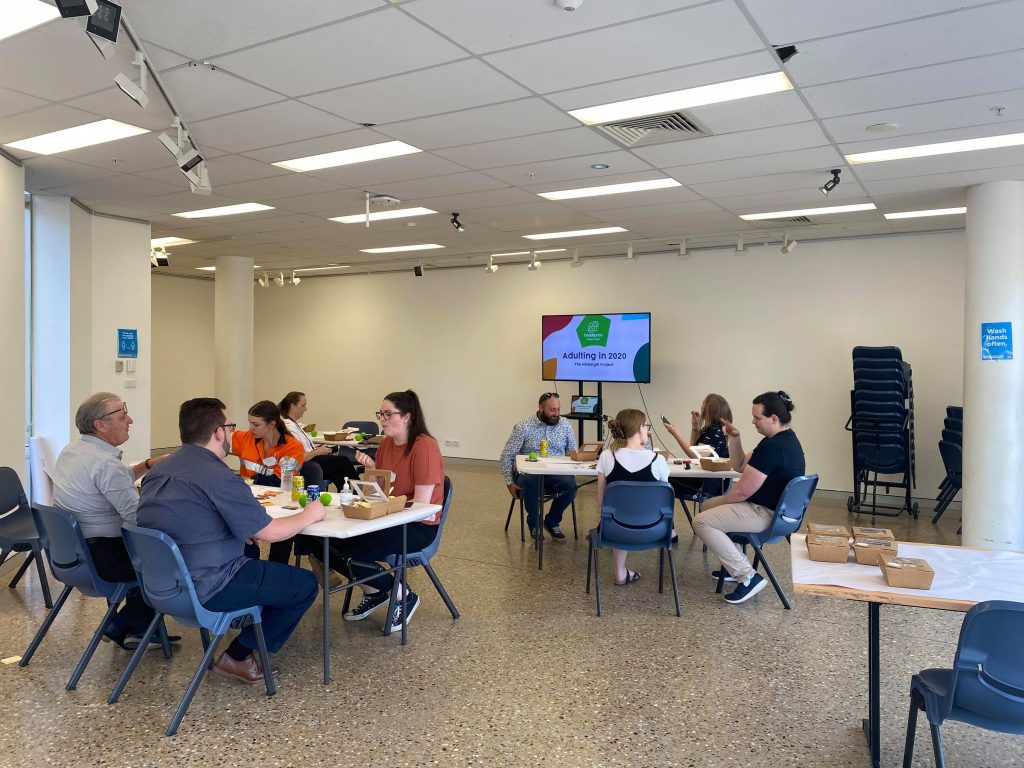
The videos were released over 10 weeks, via a Facebook page moderated by the YRG team. The “Adulting” videos reached 500 young people who now have resources to build practical life skills.
At the end of the program, the “Hindsight Project” took place for the ten young people who were instrumental in creating and curating the content. This provided an opportunity for reflection and discussion about the project and also a chance for networking.
COVID-19 restrictions made promoting the videos and authentic engagement with the content challenging. However, with the content still online and available for those who need it, the videos will continue to reach young people and provide them with tips and advice for their big move into adulthood.
Nari Nari Country
On average, people in rural and remote Australia experience much higher rates of chronic disease, avoidable illness, and are far more likely to be hospitalised in circumstances where earlier access to the right care could have prevented it. Sadly, they also find it much harder to access allied health professional services: they are often thin on the ground or not there at all.
One of the main reasons for this is the difficulty in attracting and retaining rural health workers, leading to serious gaps and inequity in access to preventative and primary health care in rural and remote areas. While connection to community and place is increasingly being identified as an important factor for retention, there are few examples of how rural communities can foster or create these conditions in a systematic way.
But one organisation is trying to help resolve this. Services for Rural and Remote Allied Health (SARRAH) is a grassroots organisation advocating on behalf of rural and remote Australian communities to have access to allied health services. SARRAH is also the peak body representing rural and remote allied health professionals (AHPs) working in public, private and/or community settings.
They received a grant for just over $140,000 through FRRR’s Enhancing Country Health Outcomes (ECHO) program, funded by Beyond Medical Education, to address persistent rural health workforce shortages in small rural and remote towns in NSW and Victoria through a project leveraging Rural Health Workforce Coordinators (RHWC).
The project team is headed by Dr Cath Cosgrave, a leading research academic in the field of rural health workforce attraction and retention.
Generally, retention research has focused on the influence of organisational and role conditions, however how individuals feel and perceive their acceptance into a community is increasingly proving to significantly influence retention. Dr Cosgrave’s findings, along with other research, indicate that the decision of a health professional to take up, stay or leave a rural position involves personal, organisational and social considerations. People who relocate to a rural place for work and have persistent feelings of social alienation and loneliness will always leave, irrespective of whether the position is financially beneficial.
That’s the key insight that informed the creation of the Attract, Connect, Stay project, which is based on a successful model developed in Marathon, Canada. The translation of this model into the rural Australian context will benefit not just the communities involved in the project but develop tools and resources that can be applied more broadly.
The project involves a whole-of-community approach to supporting health professionals and their partners / families when moving into a new rural community to help them to feel settled, become socially connected, and experience a sense of belonging, all identified as essential conditions for retention.
Planning commenced with three New South Wales pilot local government areas in August 2021: Glen Innes, Gwydir Shire and Narrabri. These communities will be supported through a series of co-designed workshops to form a network of community, local government, businesses and health service representatives. These networks will go on to jointly develop, fund, recruit, appoint, manage and monitor the RHWC position and its’ success in attracting and retaining suitable health professionals to fill health service gaps in each community.
Learnings from the three NSW primary sites will be captured in prototype tools and resources, and further tested in two secondary sites in rural Victoria. The project will conclude with a launch of a purpose-built website where the refined tools and resources will be made available to the public. This will allow other communities to use the tools and resources to help design local approaches to address gaps in their own primary and preventative health workforces.
“We need to see more community-led and innovative projects like Attract, Connect, Stay to ensure rural and remote communities have access to health professionals to the same extent as their city-based counterparts.”
Cath Maloney, SARRAH CEO
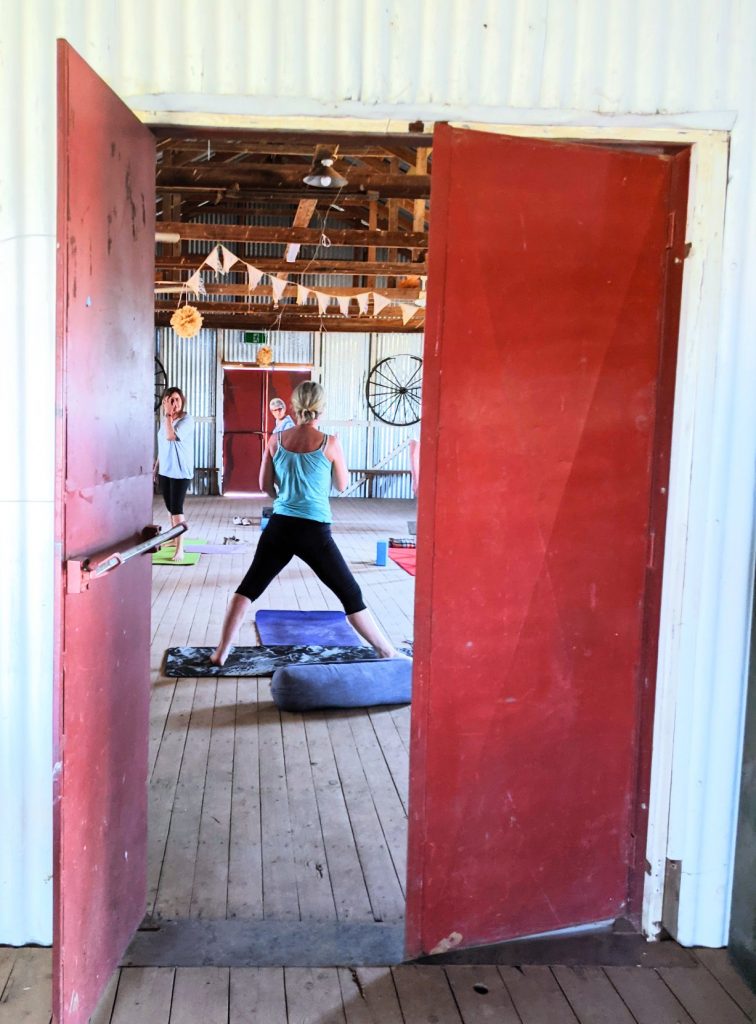
In the Bogan Shire of New South Wales, you will find the town of Nyngan. Like many remote farming towns, social isolation is a big issue within the community. Farmers and their families have had to deal with the effects of drought for years, placing extreme pressures on many people and businesses in the community. Financial pressure can often be a driving force behind social isolation in these communities. Social events and participation can be some of the first things to go when trying to save money. This can create a bigger divide for many adults, particularly farmers and their families, in the town.
CatholicCare Wilcannia-Forbes (CCWF) was established in 1996 and covers 52% of Western New South Wales. Their diverse programs offer support for parents and children, counselling, help with financial management, mental health services and programs specifically for men, Indigenous communities, and young people.
In partnership with Bogan Bush Mobile, CCWF created The Wellbeing Mobile, which included travelling out to small communities and isolated properties within a 130km radius of Nyngan, providing an outreach service for mental and emotional wellbeing for adults. This program was based on the success of the Bogan Bush Mobile early childhood education sessions, which focused on children aged 0-5. This new program was dedicated specifically to help support the adults and parents within the community.
A $150,000 Tackling Tough Times Together grant allowed CCWF to visit 11 towns over two years, and offer fortnightly two hour sessions ranging from remedial massage, yoga, exercise and nutrition, to body alignment, pilates, art therapy, counselling, clinical hypnotherapy, financial counselling and community wellbeing days.
The response to The Wellbeing Mobile was fantastic, with 300 people benefiting directly from the activities, and many more family members benefiting indirectly. The sessions were designed to help fight “drought fatigue” by giving families a break from the stressful and anxious period caused by drought and social isolation. In particular, the sessions were a big hit with mothers in the community. Bogan Bush Mobile early childhood education kept young children entertained while their mothers were able to enjoy the social interaction and the relaxing activities.
Organising these events to avoid shearing and harvest time was important in the sessions achieving high participation rates. Accommodating people that needed to travel was also an issue. To solve this problem, introducing Activity Days allowed some people to experience several activities during the day. Having multiple activity sessions over the duration of the project gave residents more opportunities to participate if they were unable to attend a class.
Executive Leader of Program Development and Delivery, Dorothee Crawley said “The feedback was fantastic, with one lady saying she had lived on her farm for 20-years and this was the first time she had interacted with her neighbours. The Wellbeing Day provided services that had never been available in the town before, and everyone thanked us for organising this event in their community.”
Earlier this year FRRR received an application to establish a Fundraising Account for St Paul’s Carcoar Community Facility Ltd (CCF), as they had an urgent need to leverage our DGR 1 special tax status. They had been given just 90 days to raise $450,000 to purchase their local Anglican Church for use as a community facility.
They achieved that goal with just five days to spare, incredibly around $390,000 of that was raised in the preceding two weeks!
Almost all of the funds were channelled via their FRRR Not-for-Profit Fundraising Account, which allowed them to offer tax deductibility to secure the pledges of their donors, so they didn’t lose the option to purchase.
George King, one of the directors of the community association, was quoted in the local Blayney Chronicle explaining how many people thought it was an impossible task to raise so much money in such a short space of time.
“A united community, the incredible generosity of a lot of people and the love of a small village made it all happen ahead of schedule and above budget.”
Carcoar is an historic town, being the third oldest town in NSW west of the Blue Mountains. It has a small community of 300 residents and has recently joined something of a revival, with a medical practice opening and the hotel reopening on a full-time basis. It has a strong community spirit, but it lacked an accessible venue for community groups to meet.
The purchase of the church means there will now be a place to host various community gatherings, association, and group meetings, and even the odd wedding, baptism or funeral, all of which attract people into the town. As a community facility, it will be open to any religious domination or to people with no religious beliefs.
The CCF committee is now seeking to raise $100,000 to pay for an accessible toilet and canteen, which will allow them to hold community functions. So far, they’ve raised $635,506 through the FRRR account.
If you would like to support the renovation of the Carcoar community church, you can do so securely online, or by completing this donation form.
Moree is a major agricultural centre in northern New South Wales, noted for its part in the Australian cotton-growing industry. Community workshops conducted by both Moree Secondary College and Moree Plains Shire Council during their strategic planning forums found public perception of the local high school at an all-time low.
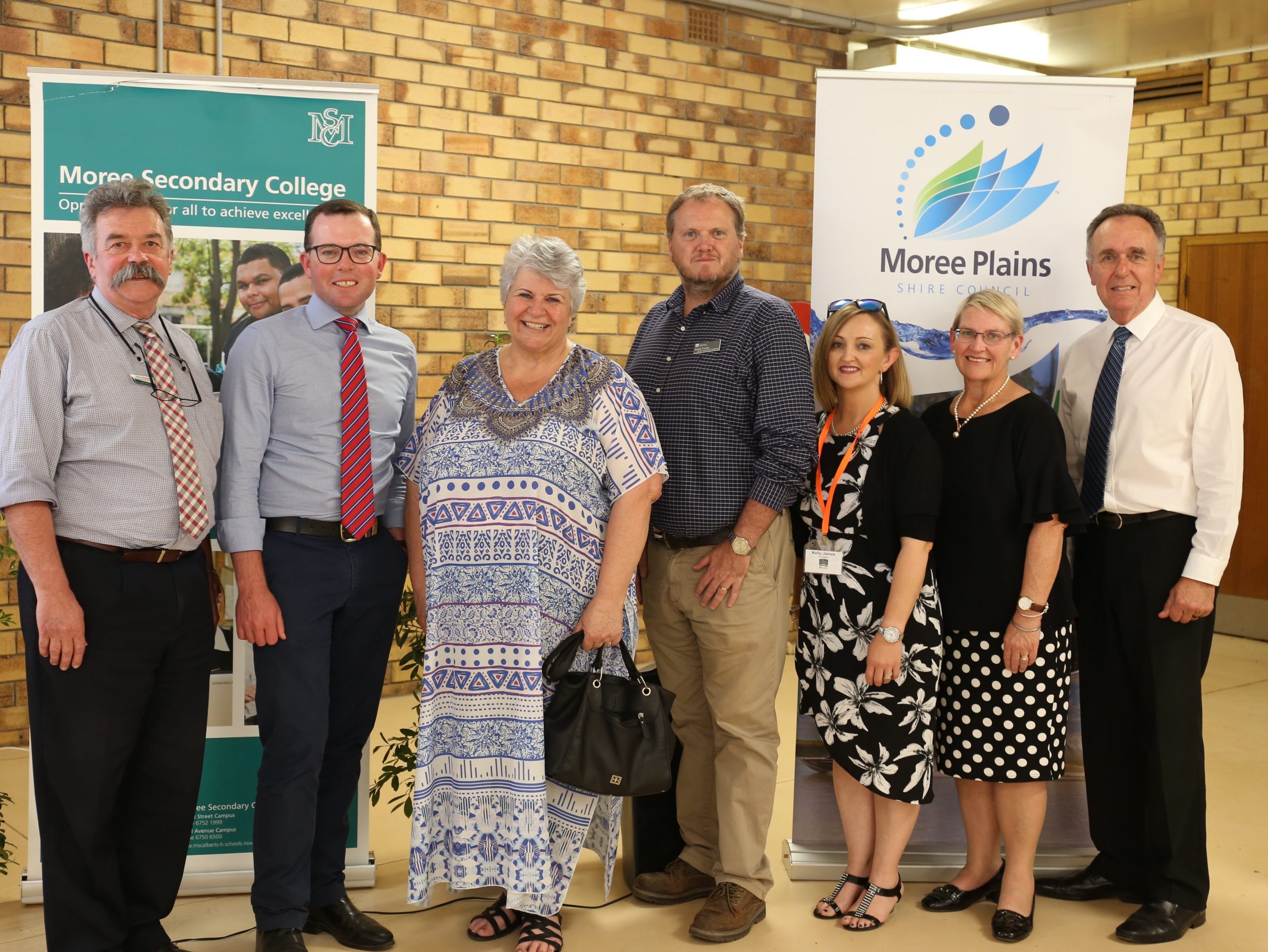
In YEAR, The newly-formed Moree Secondary College P&C Association has a committee of 12 parents, who work together to improve the facilities, equipment and uniforms for the 400 students at both the junior and senior campuses of Moree Secondary College (MSC). They developed a comprehensive communications plan designed to turn the negative perceptions around and to convey a more positive image of the school. Their aim was to showcase Moree Secondary College as an option for a quality local education, and improve the community’s relationship with the school to ultimately increase enrolments and keep more families in Moree.
A $5,000 Aussie Cotton Farmers Grow Communities grant, funded by the Monsanto Fund, helped to implement the communication plan, funding a multi-pronged campaign designed to change perceptions and raise awareness of the great things about the school, to improve engagement with the school. The campaign included a promotional video, student and teacher profiles, print and web media publications, and community engagement events. Moree Plains Council committed $3,000 to the project, and the College also contributed funding.
The P&C engaged a freelance journalist to write student and teacher profiles that were posted onto social media, as well as media releases covering various school events and articles to celebrate success in arts, sports and academic excellence.
An event was organised to launch the new video. Attended by the Executive Director and Regional Director of Education, Local Members of Parliament, Moree Plains Shire Council Mayor and more than 100 community members, the MSC P&C was able to showcase the achievements of past students. Four shorter videos were also developed to showcase Drama, Hospitality, Woodwork and Metalwork capabilities and achievements at the school.
In reporting on the project, MSC’s P&C representative Kelly James said that the 2019 year 7 and 10 intakes were at record levels. “It’s hard to know what direct benefit our promotional campaign has had on student numbers, but we believe it has had some positive impact. “The student profiles we’ve shared on social media have been excellent, with many comments often added to a post, which reinforces the dedication of the MSC teachers, the resources available and quality students graduating from Moree Secondary College.”
Grants part of $2M funding commitment for region
Thanks to a new partnership between the FRRR and The Yulgilbar Foundation, 22 projects in the Clarence Valley and surrounding region have received a much-needed boost this year, with community groups sharing in $1,214,206 in grants.
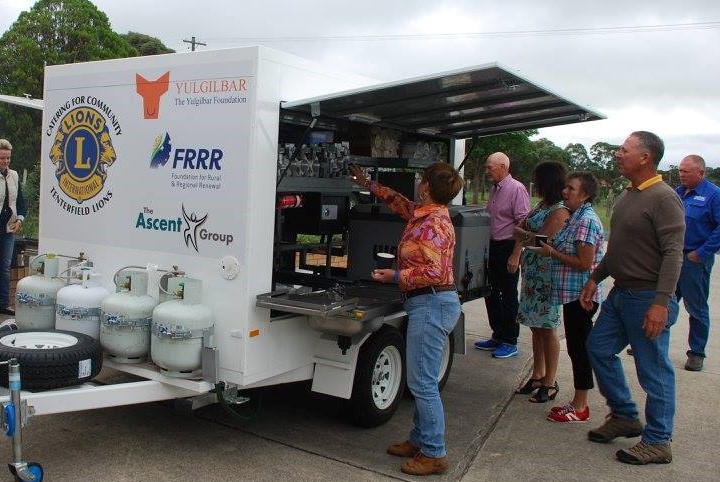
Funded through The Yulgilbar Foundation Fund program, these grants are part of $2 million investment across the region over a three-year period. Funded initiatives include 19 one-off grants and two multi-year grants that will strengthen community capacity and resilience in the wake of the 2019/20 bushfires, drought and continued challenges across the region.
A broad cross section of groups has received support for a wide range of initiatives, with grants ranging from $1,600 for a creative writing workshop to $571,000, distributed over three years, for the Changing Lanes Community Youth Garage program run by The New School of Arts. Mudyala Aboriginal Corporation has also been awarded multi-year funding, totaling $148,413, for a project focused on resilience and wellbeing of Indigenous boys and men from Clarence Valley and surrounds.
Natalie Egleton, FRRR’s CEO, said that the breadth of the projects funded reflects the diverse needs of communities in the Clarence Valley and surrounding areas.
“Great ideas and initiatives to create strong, vibrant communities are prevalent across the Clarence Valley and neighbouring regions. However, the last 12 to 18 months have made it pretty challenging to find the funding and resources to bring them to fruition.
“These grants, which are generously funded by The Yulgilbar Foundation, mean that these 22 ideas will become reality and have a positive impact on the capacity and resilience of their communities. It is fantastic to have dedicated funding available to support this region,” Ms Egleton said.
The projects supported range from creative arts, heritage and culture projects, events and festivals, gardening, street-scaping, creating employment-pathways, IT equipment and business, leadership and mental health workshops.
Further opportunities for grants will be available through The Yulgilbar Foundation Fund in the coming year. More information is available here.
The full list of grant recipients and their projects are listed below by LGA:
| Organisation | Project | Location | Grant | |||
|---|---|---|---|---|---|---|
| Clarence Valley | ||||||
North West Film Festival Inc. Arts North West Incorporated | Drought Recovery Outreach Program - Sara Storer Tour Encourage people to come together and improve community spirit in 12 drought affected northern NSW townships by bringing live music events featuring Australian singer/songwriter Sara Storer. | Clarence Valley Shire, Tenterfield Shire, & Kyogle Council | $70,000 | |||
| Richmond Valley Business & Rural Financial Counselling Services Incorporated | Family Farm Succession Planning Support and strengthen the local economy by running six community information workshops to help farming families in drought and bushfire affected communities plan for the future. | Clarence Valley Shire, Tenterfield Shire, Inverell Shire, Gunnedah Shire | $24,000 | |||
North West Film Festival Inc. Arts North West Incorporated | Choir of Fire Encourage bushfire affected communities in regional NSW to come together and unwind by running a touring music concert event in 12 towns. | Clarence Valley, Tenterfield, & Inverell Shires | $30,000 | |||
| Copmanhurst Pre-School Inc | Healing circle surrounded by native garden Enhance areas that support local recovery at Copmanhurst Preschool, through establishment of a healing circle and native garden. | Copmanhurst | $8,650 | |||
| Blicks Community Incorporated | LET’S CONNECT- The Blicks Community Communication Strategy Grow community resilience, connectedness, and emergency preparedness in the Dundurrabin area through the development and implementation of a Community Communication Strategy. | Dundurrabin | $25,000 | |||
Ewingar South Tabulam Community Sports Center Clarence Valley Council | Ewingar Rising Enhance local recovery and increase wellbeing, through delivery of community music festival on anniversary of disaster event. | Ewingar | $19,860 | |||
| Mudyala Aboriginal Corporation | Rising Warriors Program - Healing Our Way Boost resilience and wellbeing of Indigenous boys and men in the Clarence Valley and surrounds through culturally relevant activities and events. | Grafton | $148,413 * | |||
| OZ Green-Global Rivers Environmental Education Network (Australia) Incorporated | Resilient Communities - Clarence Valley Shire Build community awareness and skills in disaster preparedness with the delivery of Resilient Communities program in the Clarence Valley. | Grafton | $85,815 | |||
The Long Way Home Byron Writers Festival | Creative writing workshops with Cate Kennedy Encourage the development of creative writing skills through accessible workshops for Clarence Valley residents. | Grafton | $1,600 | |||
| The New School of Arts Neighbourhood House Incorporated | Changing Lanes Improve social connection, leadership skills, and employment pathways for young people in the Clarence Valley through the Changing Lanes Community Youth Garage program. | Grafton | $571,000 * | |||
| The Susan and Elizabeth Islands Recreation Land Manager | Ceremonial Stone placement and seating on Susan Island Celebrate local Indigenous culture and heritage by placing a Ceremonial Stone, seating and signage at a gathering place on Susan Island, Grafton. | Grafton | $4,700 | |||
| Lawrence Historical Society Incorporated | Technology to Preserve Local Cultural History and Easy Public Access Build organisational capacity to maintain and share information about the local area through new technology and website for local museum in Lawrence. | Lawrence | $19,220 | |||
| The Mend & Make Do Crew Incorporated | She He Shed Increase social connectedness and improve facilities delivering arts and craft-based activities in Grafton through fit-out costs and equipment at the She Shed He Shed maker’s space. | South Grafton | $30,000 | |||
| Woombah Residents Association Incorporated | Woombah Wellness Community Garden Raising Videos & Media Makers Mentoring Program Build organisational capacity to promote local environmental sustainability through development of virtual resources for Woombah Community Garden. | Woombah | $12,100 | |||
| Port of Yamba Historical Society Incorporated | Expanding stories of Yaegl people and their culture at Yamba Museum Build organisational capacity of Historical Society in Yamba to celebrate local Indigenous culture through the installation of artwork and enhancements at local museum. | Yamba | $20,000 | |||
| Coffs Harbour | ||||||
| Glenreagh School of the Arts Incorporated | Cedar and Steam Art and Photo Exhibition 2021 Boost capacity of Glenreagh School of the Arts to support local artists and community access to artworks by upgrading display systems. | Glenreagh | $4,000 | |||
| Goondiwindi | ||||||
| Lanescape Goondiwindi Incorporated | Masterplan Art Trail Enhance the amenity and vibrancy of Goondiwindi through a public art project engaging the local community. | Goondiwindi | $25,000 | |||
| Kyogle | ||||||
| Proprietor Bundgeam Preschool Incorporated | Community Bike Track & Solar Installation Boost community preparedness, resilience and wellbeing in Terrace Creek, NSW, through the development of a community bike track and solar installation at local preschool site. | Terrace Creek | $42,000 | |||
| Border Ranges Riding Club Incorporated | Supporting the activities of Border Ranges Riding Club 2021-2022 Boost access to inclusive community activities in Woodenbong through local riding club fostering skill development, social connection, and resilience. | Woodenbong | $6,975 | |||
| Woodenbong Progress Association | Upgrade of the median strip in MacPherson Street, Woodenbong Enhance the streetscape and boost community spirit in Woodenbong through the beautification of the main street. | Woodenbong | $5,600 | |||
| Tenterfield | ||||||
| Tenterfield Show Society Incorporated | Connecting 1876-2021 Build capacity of Tenterfield Show Society to preserve local history and culture through restoring and digitalizing the photographic collection of the region dating 1876 to 2021. | Tenterfield | $4,906 | |||
| Arts North West Incorporated | CreativiTEA - Seasonal Stories of the New England North West Boost community resilience and connections in four townships in Inverell and Tenterfield Shires through a series of creative workshops over two years. | Tenterfield & Inverell Shires (Drake, Ashford, Tingha, Torrington) | $55,367 | |||
| * Funding to be distributed over multi-year projects | ||||||
Local NFPs in Nowra area invited to have their say
FRRR is inviting not-for-profit organisations (NFPs) in the Nowra region to take part in an upcoming series of workshops to plan how the Foundation’s Investing in Rural Community Futures (IRCF) program can support them to create stronger organisations for a stronger community.
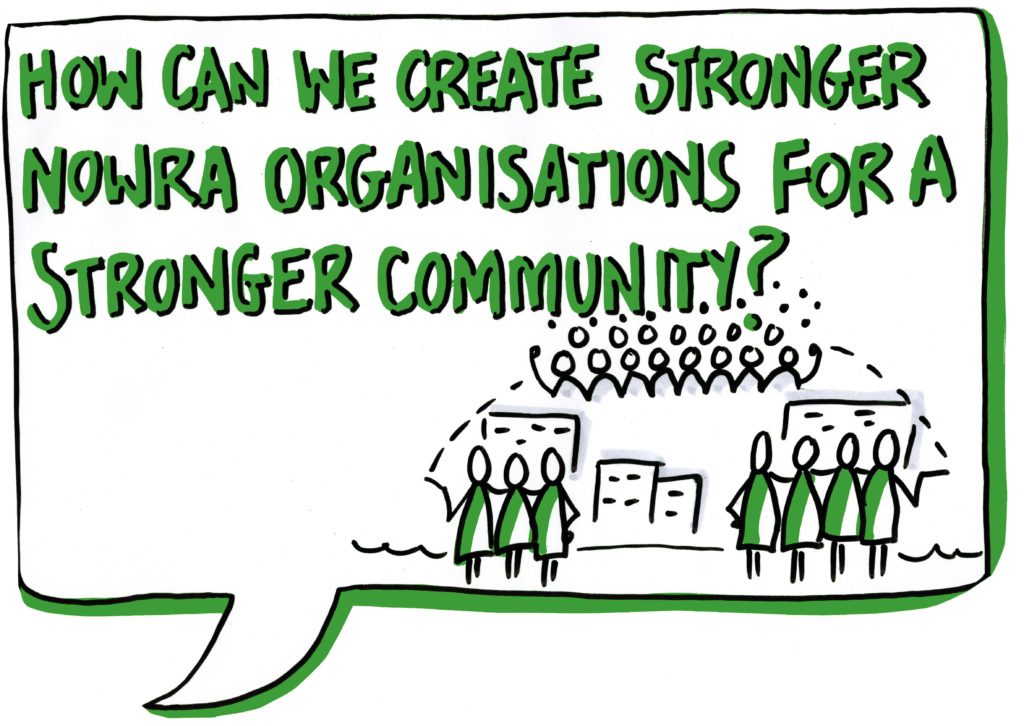
FRRR’s IRCF program is run in partnership with The Snow Foundation. Now in its second year, the five-year program is designed to strengthen local NFPs on the South Coast through localised support, resources and funding, so they can make lasting impacts in the community.
Called “Community Roadmap” (CR) workshops, these sessions will allow NFPs in the Nowra region to come together and map out how they will leverage the funding and support of the IRCF program over the next four years to maximise opportunities for long-term sustainability.
Kate Dezarnaulds, FRRR’s IRCF Program Coordinator, said that the workshops will look to the future, helping Nowra NFPs uncover shared goals and challenges, as well as offer a safe space for participants to reflect on and share the considerable challenges of the past year.
“These workshops are the next stage in the IRCF program. They are a great opportunity for local NFPs to come together and celebrate their resilience, as well as aid collaboration and sharing of resources,” Ms Dezarnaulds said.
“As a result of these Community Roadmap workshops, the Nowra NFP community will have a list of priority projects that the IRCF program can then support over the next four years with grants and expert advice.
“The Community Roadmap is likely to uncover shared goals and needs such as strategic planning, governance training, digital marketing, finance advice and support, and additional resources to support innovation, sustainability and recovery.
“We are working with expert local facilitators, Campfire Coop, and invite a wide range of representatives from local NFPs in the Nowra region, including those not currently funded through the IRCF program, to come along to the workshops and have their say,” Ms Dezarnaulds said.
FRRR also announced $83,000 in funding for three projects in Nowra as part of the program’s initial Start-Up Grants. These projects will help to support and connect the community to respond to the challenges of 2020. In total, nine projects have already been funded through the IRCF program, thanks to the generosity of The Snow Foundation.
Nowra Community Roadmap workshops
Community leaders are invited to come along to either the day or evening session.
| When | Day session: Tuesday 1 June, 9.30am-3.30pm (lunch provided); or Evening session: Wednesday 2 June, 5-9pm (light meal provided) |
| Where | Day session: Nowra School of Arts Evening session: Bomaderry Bowling Club |
| How | Day session: Bookings via link Evening session: Bookings via link |
Nowra Start-Up Grant Recipients
- Pathways Foundation Ltd – Pathways Foundation – $30,000 – Accelerate the implementation of a new COVID-adapted and localised strategic plan with seed funding for the appointment of a community development officer.
- South Coast Women’s Health and Welfare Aboriginal Corporation (trading as Waminda) – Waminda’s Social Enterprise Initiatives – $23,000 – Strengthen the financial sustainability of Waminda while developing the skills and confidence of Aboriginal women to secure employment, through the implementation of a business plan for three social enterprises.
- Noah’s Inclusion Services – Enhancing the strength, effectiveness, and longevity of the Noah’s Inclusion Services workforce – $30,000 – Rejuvenate the pipeline of available allied health care workers and support succession planning for Noah’s leadership position s through a coaching program and a long-term student placement partnership with the University of Sydney.
See the funded Nowra projects already underway here.
For more information about the Investing in Rural Community Futures program in NSW South Coast region visit – https://frrr.org.au/funding/people-grants/investing-in-rural-community-futures-nsw-south-coast/.
In the historic town of Wingham, in the Manning River Valley on the NSW Mid-North Coast, Circatus offers classes in general circus skills, stilts and aerial skills. It might sound very niche for a rural town, but the program actually fills an important gap –the need for non-competitive and expressive arts opportunities for the community to engage with.
Circatus gives the community – mostly young people – access to diverse and vibrant circus and creative arts in an inclusive and nurturing environment. Since 2009 just one trainer, founder Jill Watkins ran the show, averaging 90 students and 17 classes a week. Local catchment communities include Hallidays Point, Bobin, Elands, Mount George, Taree and Landsdowne, all within 20-50 minutes drive, however there were some families who would travel from as far as 75kms away to attend.
Rethinking the model for sustainability
Originally operating as a sole trader business, by the end of a decade of operation it became clear that the organisations’ structure needed to be rethought. Circatus had built quite a little community through classes at its Wingham space, performance projects at community events, delivery of circus as a sports elective at Wingham High School, weekly scheduled classes for a third of the 100 families in the Manning Valley Community who home school their children, and wellbeing workshops for teenagers with disability, Aboriginal youth and children in out-of-home care. One supporter wrote that “While training students in the physical circus arts, [Jill] also facilitates life skills such as confidence building and teamwork.”
Jill brought together a passionate group of five committee members and 18 volunteers and Circatus entered a new model of operation as a NFP, opening the doors for the beginning of Term 3 2020 and operating five classes a week. But building capacity to deliver more classes was a priority. Circatus needed a group of trainers to make the program sustainable into the future. Most performing arts work is in metropolitan areas, so regional circus programs find it very difficult to attract circus artists to teach.
A grant to build capacity
The group successfully applied to the Small & Vital stream of Strengthening Rural Communities to help fund a ‘Train the Trainer’ program. This would provide weekly mentoring and coaching for ten volunteer trainers, supported by a weekend intensive session for aerial skills. The funding will also cover documentation of a teaching manual, supported by videography to be utilised by these 10 future Circatus teachers. As of February 2021, the project is underway and there are six new trainers teaching a variety of circus skills to locals aged four years to adult.
What a win-win outcome! Trainer participants are supported to develop their leadership skills and an employment pathway, AND the general community has the opportunity to continue enjoying a vibrant and culturally enhancing experience, right on their doorstep. This circus can stay in town – watch this space for more great outcomes from this project!
Woolomin is a rural village located in North West slopes of NSW. It’s home to just 279 residents, including many families, but there is no public playground for the children to play at.
Many young families in Woolomin have limited capacity to travel to larger centres for sport and recreation, due to the costs associated and lack of public transport. Children were increasingly using the streets to play in, and this was problematic, with the main road through the centre of town being quite busy with traffic (connecting Tamworth to popular tourist destinations including Nundle and Chaffey Dam).
It was clear that developing a safe place for children to play, and along the way helping to combat social isolation in the village, was a community priority.
Tamworth Regional Council, in partnership with the Woolomin Recreation Reserve Committee (WRRC), took on the challenge, working together to come up with a plan that would make their community stronger and more socially connected.
Consisting of 12 members, supported by an additional 10 passionate volunteers, WRRC was established in 2004 to develop Woolomin Recreation Reserve as an important hub to the Village, and they’ve since made a range of improvements for the community – the playground project was next.
The two organisations applied for FRRR’s Tackling Tough Times Together program, and were thrilled to hear that they had received a $59,000 grant, thanks to generous funding by the Australian Governement and Stockland CARE Foundation. At the time of applying, Woolomin was fully drought-declared.
With the new funding to install a playground at the local recreation reserve, they got to work, but not before consulting with those who would benefit most from the project – the local kids.
Woolomin Public School children played an integral part in designing the play area through their input into the type of equipment that would be installed. They actually started drawing up plans in mid 2018! The children’s requests were limited only by their imagination, and can be read in their letters to council here. While not every request was possible (zip lines, merry-go-rounds, monorail, a fairy floss fountain, mango trees, skate park and a Beyblade stadium were all put forward, as well as more traditional playground equipment!) it was clear that they put a lot of thought into their submissions.
One student wrote:
“In the park I would like to see a lots of trees, plants, shade shelters, seating, a bike rack and things that can help the environment.”
The final design includes components which encourage fine-motor skill play, gross-motor skill play and imaginative play as well as promoting an accessible and inclusive space for children of all abilities.
There’s nothing stopping these creative Woolomin kids from adding to the playground in the future so that it’s all they desire. For the meantime, it’s clear from their letters that it will bring important benefits.
“A park in Woolomin would make me very happy because it would give me a place to go to calm down and stuff.”
“Thank you for building in Woolomin as it will help the kids be active.”
“Thankyou if you build it. It will be so much fun and help people meet others.”
A number of visitors to the community are accessing the playground, and the local community feedback is very positive. A neighbouring land holder commented that it is “just lovely to hear the children laughing and having fun, I have seen mum reading the paper in the sun and the children on the play equipment.”
The playground has created the opportunity to draw family and community members to a central spot in their community, to spend time together, play and provide a sense of connection and wellbeing.
Well done Woolomin!

